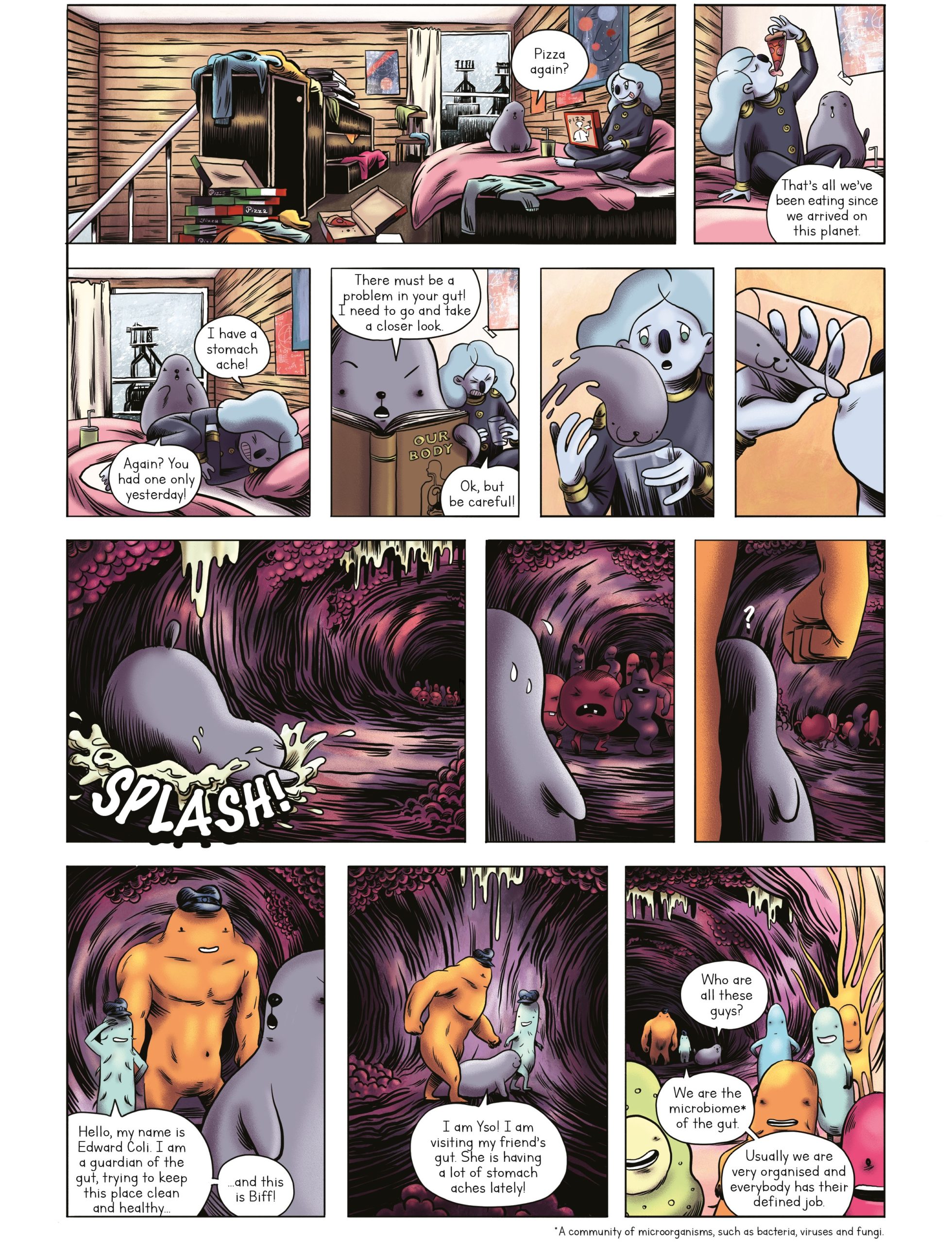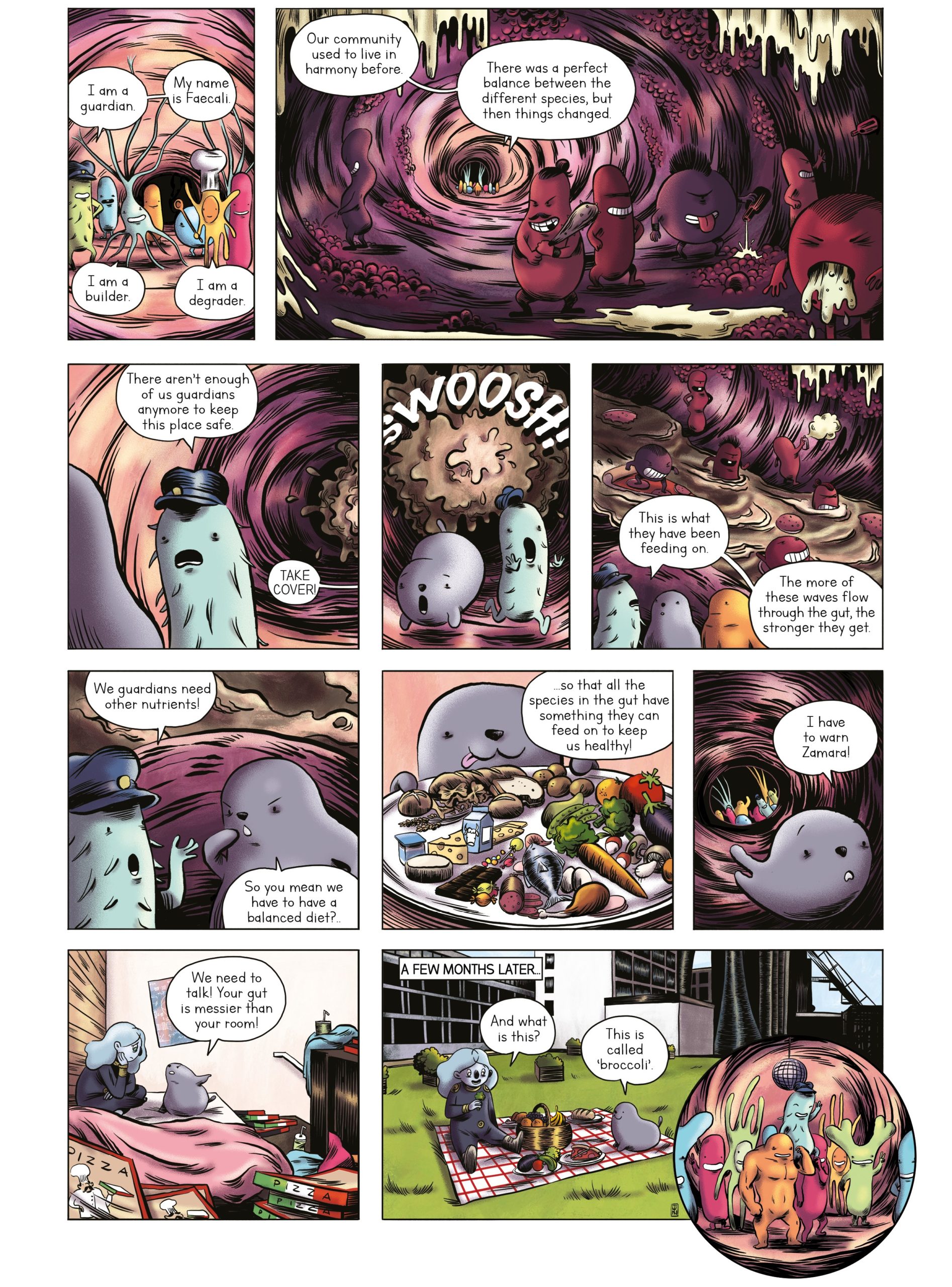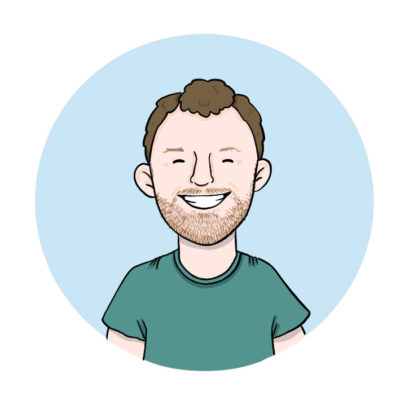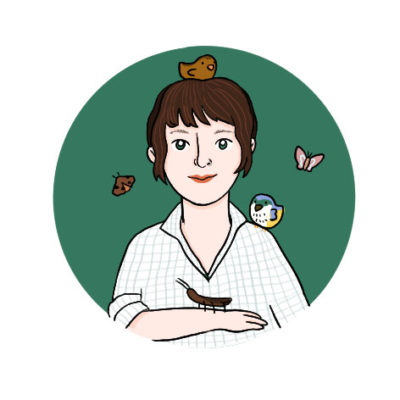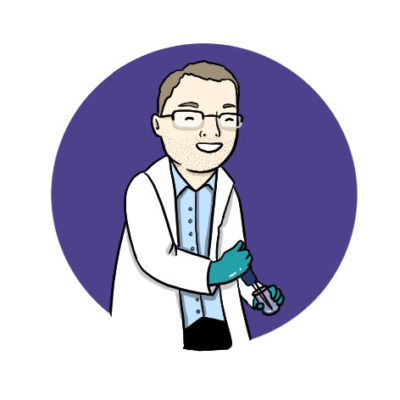Comics
A Gut Feeling
ARTIST
ANTOINE GRIMÉE
Born in 1992, Antoine ”Tunn” Grimée completed a master’s in narration at the École de Recherche Graphique in Brussels in 2017. After his studies, he started working in comics and illustration. He produces various illustrations for the written press as well as posters for the Luxembourg cultural scene, and regularly publishes one-page comic strips devoted to historical characters in Warte-Perspectives. In 2018, “De Coyote am Schofspelz” was published by Fairtrade Luxembourg, first in the serial section of the Revue, then as a full-length album. In 2019, he released “D’Geheimnis vum verschwonnene Sall”, commissioned by the Lycée Michel Rodange on the occasion of its 50th anniversary.
Location
Mersch, Luxembourg
Contributions to LUX:plorations:
A Furry Tale
A Gut Feeling
Why did you participate in LUX:plorations?
“I’m generally open to any new proposal, especially if it takes me out of my comfort zone and allows me to experiment both graphically and narratively. Having a keen interest in science anyway, I didn’t hesitate for a second when I was offered to participate in this project.”
What did you like most about LUX:plorations?
“The most fun and enjoyable part was immersing myself in the students’ stories. They had done a really good job up front: it was well put together, there was just the right amount of information, action and humor… I just had to let myself be carried away.”
What was the biggest challenge for you?
“The hardest part was to reduce to two pages per story, without overloading them, and without distorting the students’ words.”
SCIENTISTS/AUTHORS
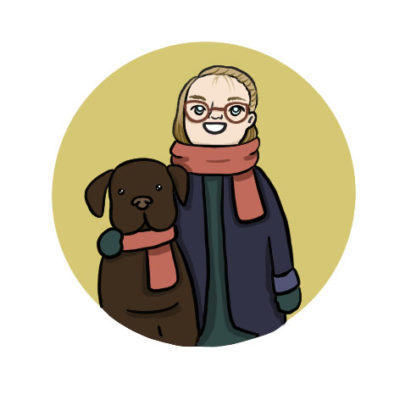
CATHERINE SEDRANI
“The composition of microorganisms in our gut is known as the microbiome and is crucial for our health and disease. A shift in the balance of the microbiome can lead to various diseases such as gastrointestinal disorders or even neurodegenerative disease. How the gut microbiome communicates with the nervous system still remains unknown! This question is the focus of my PhD.”
Research Focus
Gut Microbiome – Nervous System Axis
Affiliation
Systems Ecology Research Group, Luxembourg Centre for Systems Biomedicine (LCSB)
University of Luxembourg
Contributions to LUX:plorations:
A Gut Feeling
Why did you participate in LUX:plorations?
“The interest in research in Luxembourg is significant, but there is still a lack in making research available for a broader public. Therefore, explaining our research through a comic seemed to be a perfect way to show people, what we do in research here in Luxembourg.”
What did you like most about LUX:plorations?
“Putting our research into a two-page comic was a different and very unique approach to science compared to what we usually are used to. Seeing the comic slowly come together and evolve over time was great. Having brought together different perspectives and scientific fields makes me feel proud of the great team I was part of, and of what we have been able to create together.”
What was the biggest challenge for you?
“Coming up with an idea for the story to excite people about our research and to put everything in only two pages, was a challenge. Working with a great team, with fellow PhD students, the artist and our mentors, made this challenge so much easier and fun. In the end, this challenge became a great experience for life.”

CATHERINE DELBROUCK
“Cancer cells rapidly reproduce and invade tissues by rewiring the cellular metabolism. Cellular metabolism is a sum of chemical changes that take place in a cell through which a nutrient is converted to smaller components. These so-called metabolites are provided for essential processes, including energy and building blocks synthesis. One important metabolic pathway that is often hijacked by cancer cells is the one-carbon cycle. A broader comprehension of this important metabolic pathway and its by-products, could be exploited for therapeutic application against invasive cancer types.”
Research Focus
Cancer Metabolism
Affiliation
Cancer Metabolism Group, Department of Oncology
Luxembourg Institute of Health (LIH)
Contributions to LUX:plorations:
A Gut Feeling
Why did you participate in LUX:plorations?
“In my opinion, we need to fundamentally reimagine how we communicate science to the broad public. LUX:plorations allows to make science truly accessible to a young and dynamic public.”
What did you like most about LUX:plorations?
“It was a new experience to transform current Luxembourgish research into a science comic. Our working group enjoyed picturing the “Microbiome World” and its inhabitants.”
What was the biggest challenge for you?
“It was tough to come up with a scientifically correct comic but still entertaining.”
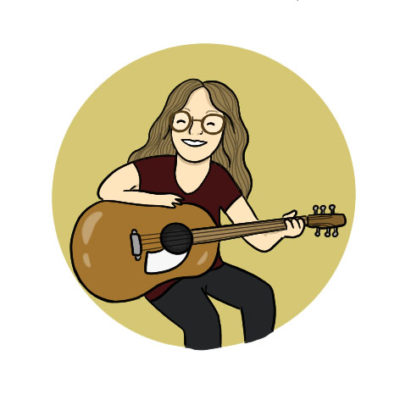
LYNN BONETTI
“I carry out my research in the field of immunology at the Luxembourg Institute of Health. Our group focusses on the pathways that regulate our immune response and tries to identify possible targets for immunotherapy. The principle of immunotherapy is to manipulate the immune system (our own defense system) in order to fight diseases. On one hand, we can boost the immune system and make it stronger to fight cancer or infections. On the other hand, we can dampen it and make it weaker in case of autoimmune diseases. In my research, I focus on antioxidant molecules and how they regulate the immune response against gastrointestinal diseases.”
Research Focus
Immunology
Affiliation
Experimental and Molecular Immunology Group (joint research group with LIH and LCSB), Department of Infection and Immunity
Luxembourg Institute of Health (LIH)
Contributions to LUX:plorations:
Microglia: Guardians of the Brain?
Why did you participate in LUX:plorations?
“I was eager to participate in this project, because it combines two of my greatest passions: science and writing stories. Additionally, I also see popularizing science as a very important task. Sharing scientific knowledge in a comprehensive way allows us to communicate the importance of science and make people more aware of what is going on in our laboratories. Finally, it also feels great to pass on my passion to other people (maybe even possible future scientists).”
What did you like most about LUX:plorations?
“Creating our own characters and giving them a story was my favorite aspect in this project. It was fascinating to participate in the whole process of creating a comic and to see how our story and characters evolved throughout it all.”
What was the biggest challenge for you?
“The biggest challenge of this project was to adapt the scientific input and make it understandable to a non-scientific audience. Additionally, it was quite challenging to condense the story and fit it on 2 pages.”
MENTOR
VERONIKA MISCHITZ
Veronika Mischitz (Véro) is a former biologist, turned freelance visual storyteller. For over a decade, she focuses on visualizing and communicating science to broad audiences from various backgrounds through the medium comics. Driven by curiosity and a sense of wonder, she loves to explore unknown territory, learn new things along the way and turn them into compelling stories. Veronika is also teaching the magic of her craft to kids and adults. She is a mentor for LUX:plorations and the creator of the comic story “Why Science Comics?”.
Work Focus
Visual communication, storytelling, science comics
Contributions to LUX:plorations:
Why Science Comics?
A Furry Tale
A Gut Feeling
The Adventures of Tuwwo the Water Molecule
Math, Magic and Maryam
Why did you participate in LUX:plorations?
“As a comic artist and science communicator LUX:plorations is a dream come true: A group of highly motivated experts from different fields joining forces and creating outstanding science comics as a result!”
What did you like most about LUX:plorations?
“Working with such motivated, open and mindful participants as well as team members from all over life sciences and MINT was amazing. Creativity and inspiration grew from our efforts as we explored new toolkits and skills together.”
What was the biggest challenge for you?
“Clearly, remodeling the on-site teaching program into an online class and executing it was a big challenge. Ensuring ongoing attention and support for all participants was extremely important to me and more difficult in an online-setting. But I think, we did a good job on that.”
SUPERVISOR
SERGE HAAN
Serge Haan is a professor of biological chemistry in the Department of Life Sciences and Medicine (DLSM) at the University of Luxembourg. His research in the Molecular Disease Mechanisms Group focusses on molecular disease mechanisms associated with the development and metastasis of colon cancer: how do cancer cells develop resistance to treatment and how do they interact with their microenvironment? His strong interest in communicating science to the public led to his founding the DESCOM project.
Research Focus
Molecular Disease Mechanisms, Cellular Signaling
Contributions to LUX:plorations:
Inside the Solar Cell
A Gut Feeling
Why did you participate in LUX:plorations?
“I like thinking about how to break down difficult scientific content into understandable communications. It is actually a fun challenge and I consider it a duty of a University to reach out to the public.”
What did you like most about LUX:plorations?
“The dynamic of the entire team is excellent. Everybody is extremely motivated and we are all working towards the same goal.”
What was the biggest challenge for you?
“The remote work on such an interactive process with many discussions around the details in the graphics was a challenge. However, it turned out to work quite well in the end.”
ACADEMIC SUPERVISOR
Kacy Greenhalgh

